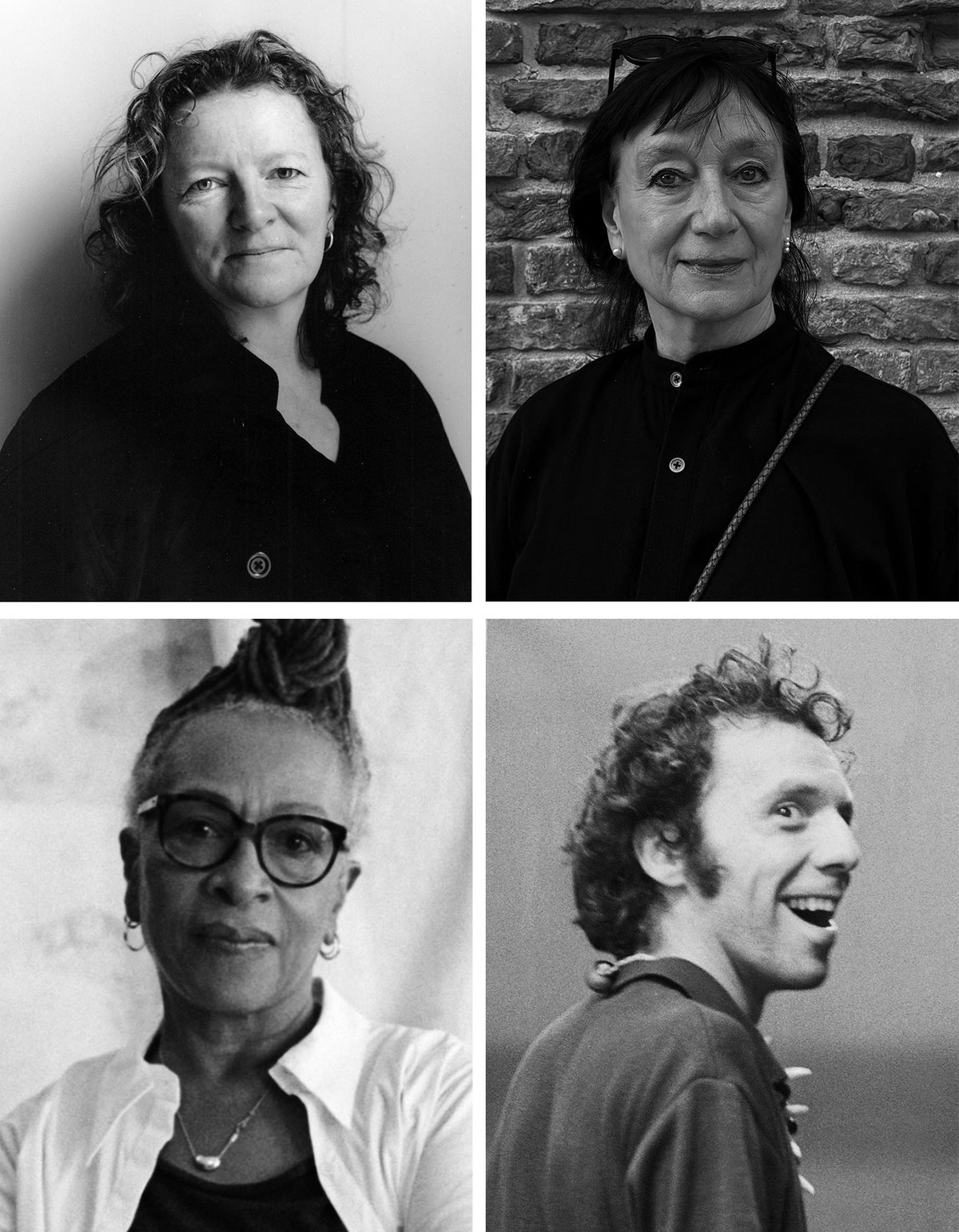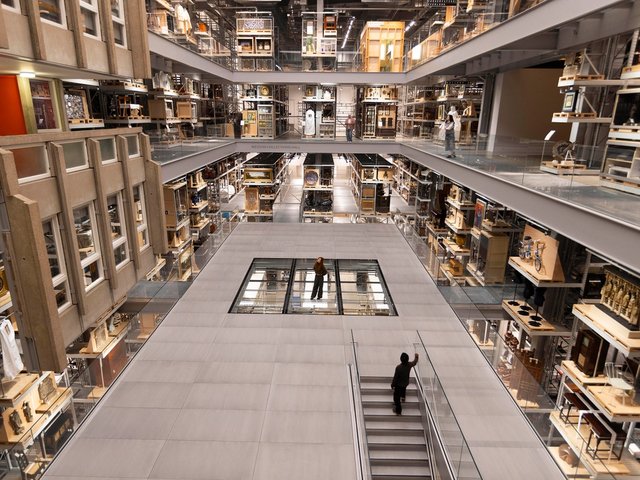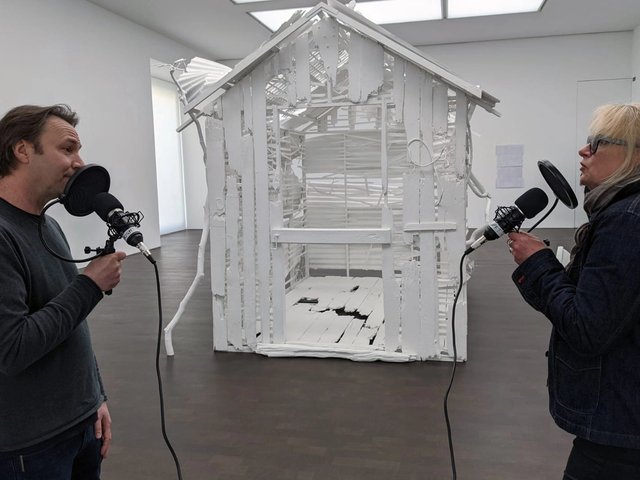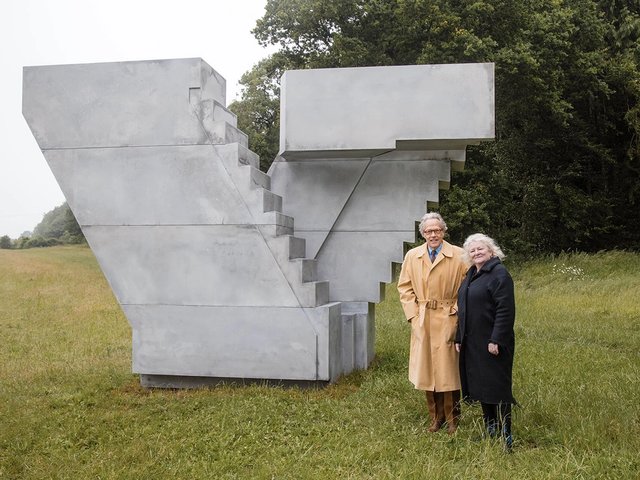The Goodwood Art Foundation, a non-profit focused on art, environment and education, will open at Goodwood, in Sussex, in May 2025, featuring the work of the artist Rachel Whiteread in its first headline exhibition. The Duke of Richmond, whose family have been custodians of the house, collection and agricultural and sporting estate at Goodwood for more than three centuries, announced the launch of the foundation at the Royal Academy of Arts (RA) in London on 6 November. The foundation will offer a new destination for contemporary art on an estate that already attracts one million people a year to events it hosts based on the sports of horse racing, motor racing, flying and cricket.
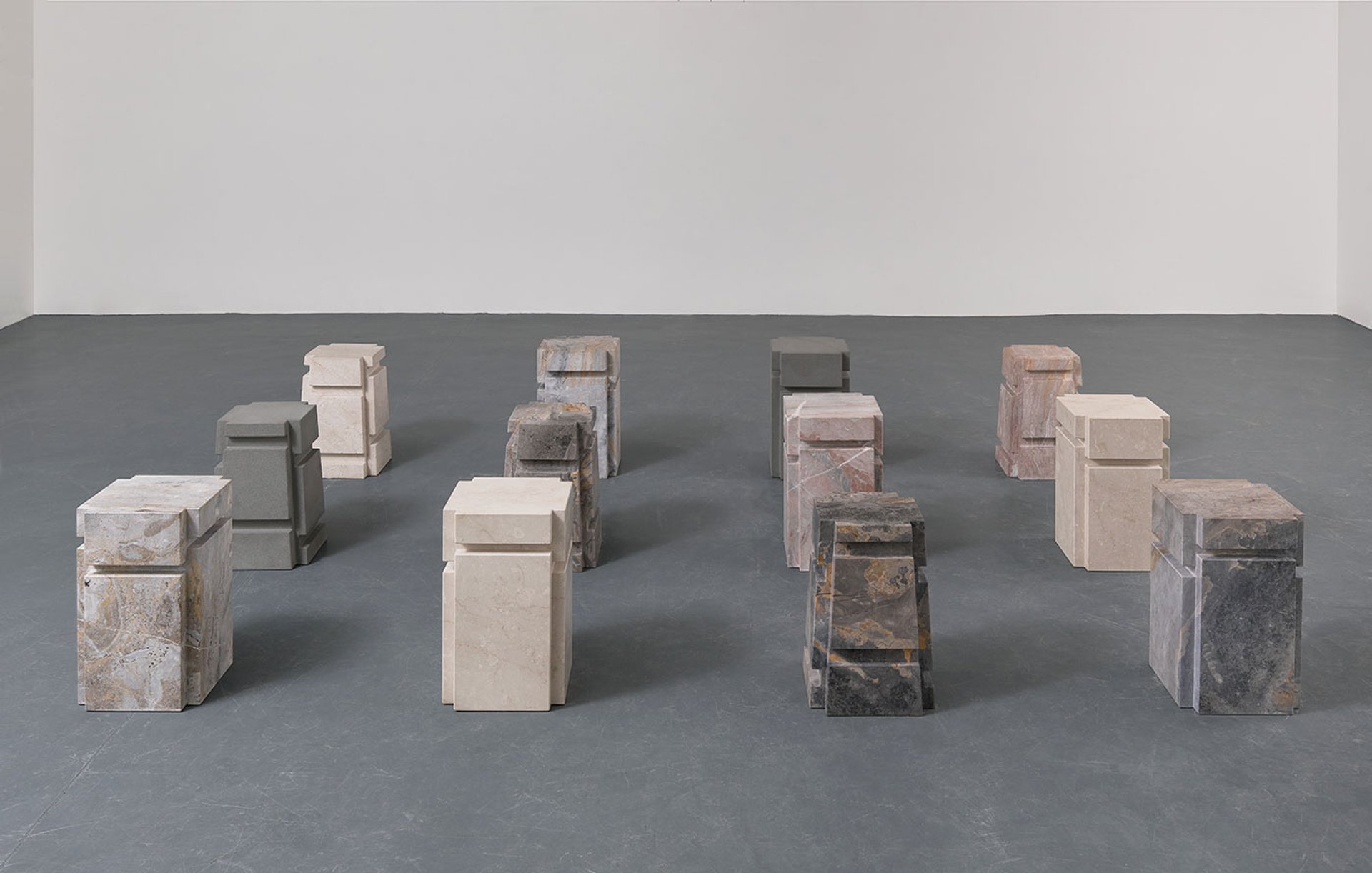
Rachel Whiteread, Bergamo III, 2023 © Rachel Whiteread. Photo: Prudence Cuming Associates Ltd. Courtesy Gagosian
Whiteread, in an exhibition curated by Ann Gallagher—the former director of collections for British art at Tate who is leading the foundation's art programme—will show photography and sculpture in the Pavilion Gallery, set in a woodland site where the artist will also display site-specific larger works. Whiteread has produced photographs throughout her career, Gallagher said at the foundation’s London launch, “and these have formed an integral aspect of her working process, but have mostly been visible only in publications”.
“I am delighted to be the first artist profiled in the inaugural exhibition within the beautifully refurbished Pavilion Gallery and landscape of the new Goodwood Art Foundation,” Whiteread said in the foundation's press announcement. “The ethos of providing audiences with the opportunity to experience contemporary art integrated into a carefully designed natural environment is something I particularly respond to.”
The Pavilion Gallery—originally built for the Cass Sculpture Foundation in 2006 while that body leased 26 acres of the Goodwood estate as a home for contemporary sculpture between 1992 and 2020—is being restored for the Goodwood Art Foundation by its original architect, Craig Downie. Downie will also create a new reception building and restore a second building, which he first designed as a visitor centre in 1994.
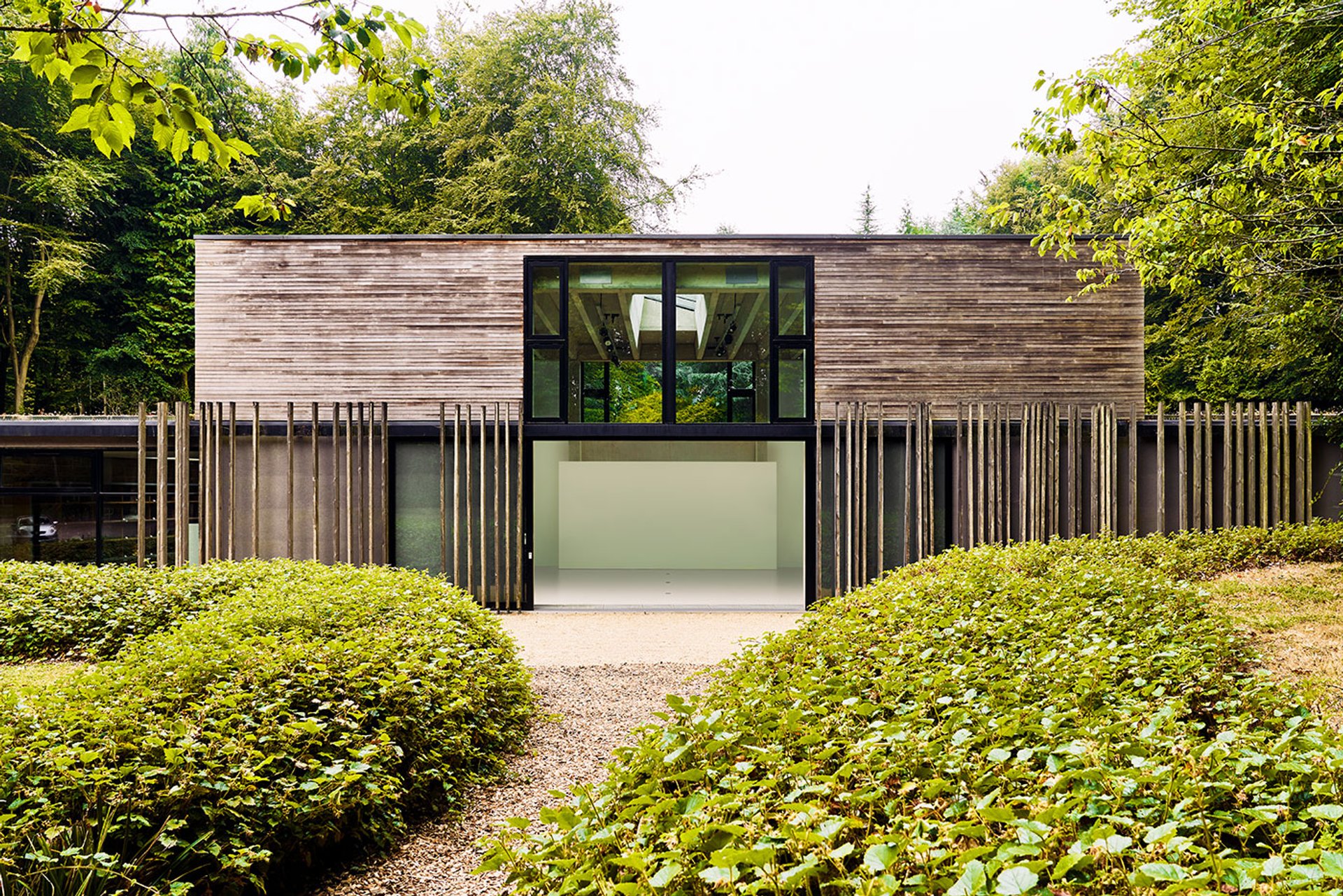
Pavilion Gallery, Goodwood Art Foundation. It is being restored by its original architect, Craig Downie Studio Downie Architects LLP. Photo: Dominic James
Semi-permanent artworks will also feature in the Goodwood landscape, starting with pieces by the Montserrat-born London and New York-based sculptor Veronica Ryan and the late Brazilian artist Hélio Oiticica. Ryan, winner of the 2022 Turner Prize, will unveil a new sculpture, while work from Oiticica’s Magic Square series, Gallagher said, “will be constructed according to the artist's instructions on site” to form the first major public outdoor installation in Europe of work by the artist. Gallagher described The Magic Square works as monuments to Tropicália, a movement led by Oiticica “that came to identify an entire movement of art, music, and Brazilian identity in the late 1960s”.
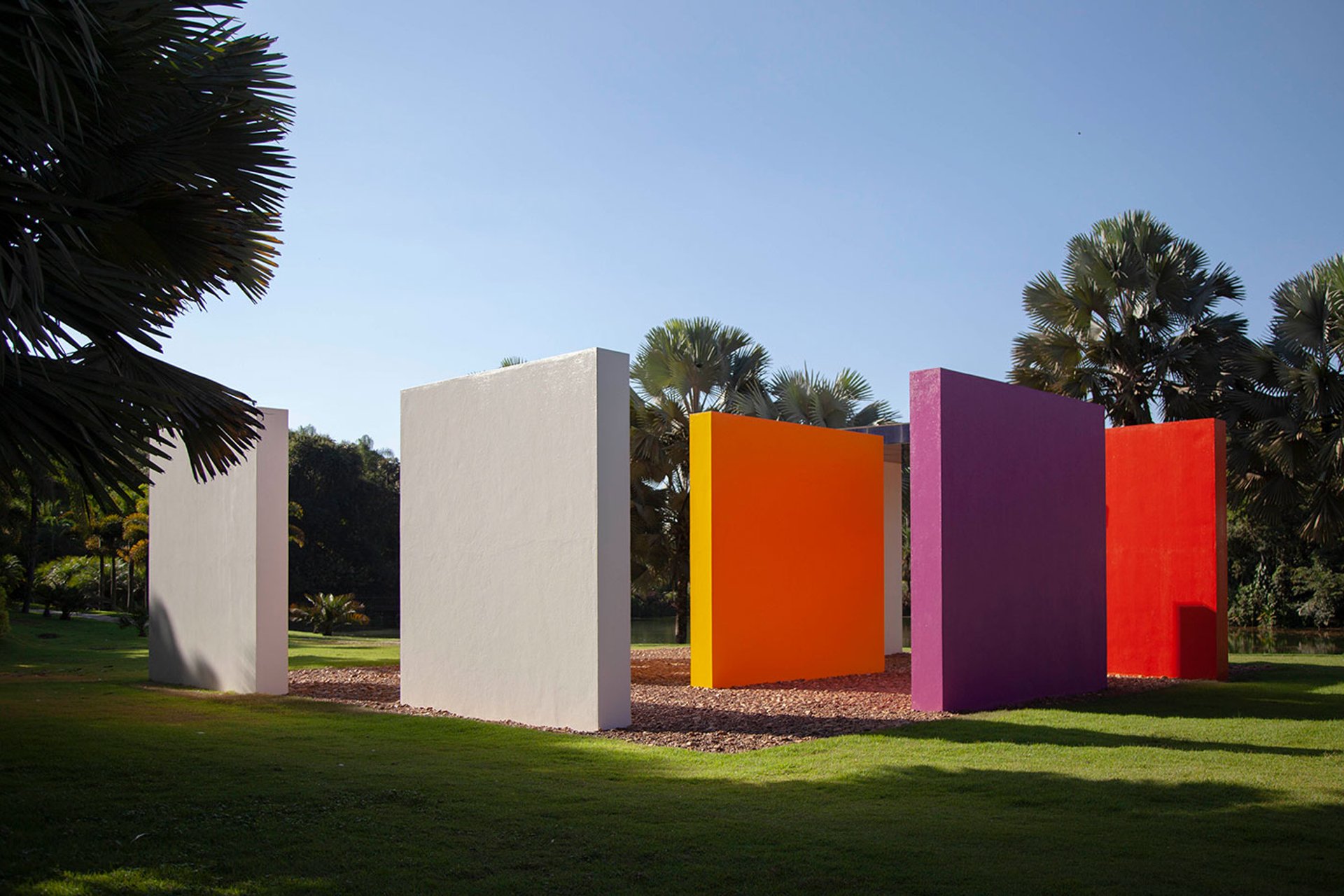
Hélio Oiticica, Invenção da cor, Penetrável Magic Square #5, De Luxe, 1978. Held in the permanent collection of Inhotim Centro de Arte Contemporânea, Brumadinho, Brazil © Projeto Hélio Oiticica, Courtesy Inhotim Centro de Arte Contemporânea, Brumadinho, Brazil
The foundation, the duke said, “will place important works of contemporary art in a beautiful, ever-changing natural environment, while also delivering a powerful education programme to inspire all our visitors, whatever their age or background”. The landscape architect Dan Pearson, the duke said, is creating a new setting for the foundation with a “24-season environment so that every two weeks you have a new experience”. “I'm very interested in the changeability” of the UK ecology and climate, Pearson said in an announcement video. “Every two weeks there will be a rollover of one thing into the next, subtle but big-scale gentle things. The bluebell wood or a hedgerow lighting up with cow parsley in May.”
The foundation's work is supported by Stephen A. Schwarzman Foundation, founded by the philanthropist Stephen A. Schwarzman, CEO of the private equity giant Blackstone. “I’m proud to support the Goodwood Art Foundation, particularly its historic landscape," Schwarzman said. “It is so critical to create compelling settings like this where students and visitors of all ages can engage with the arts and history.” The newly landscaped Schwarzman Gardens, named in his honour, will include a grass amphitheatre, with a backdrop of white birch, devised by Pearson to host visiting groups and live open-air performances.
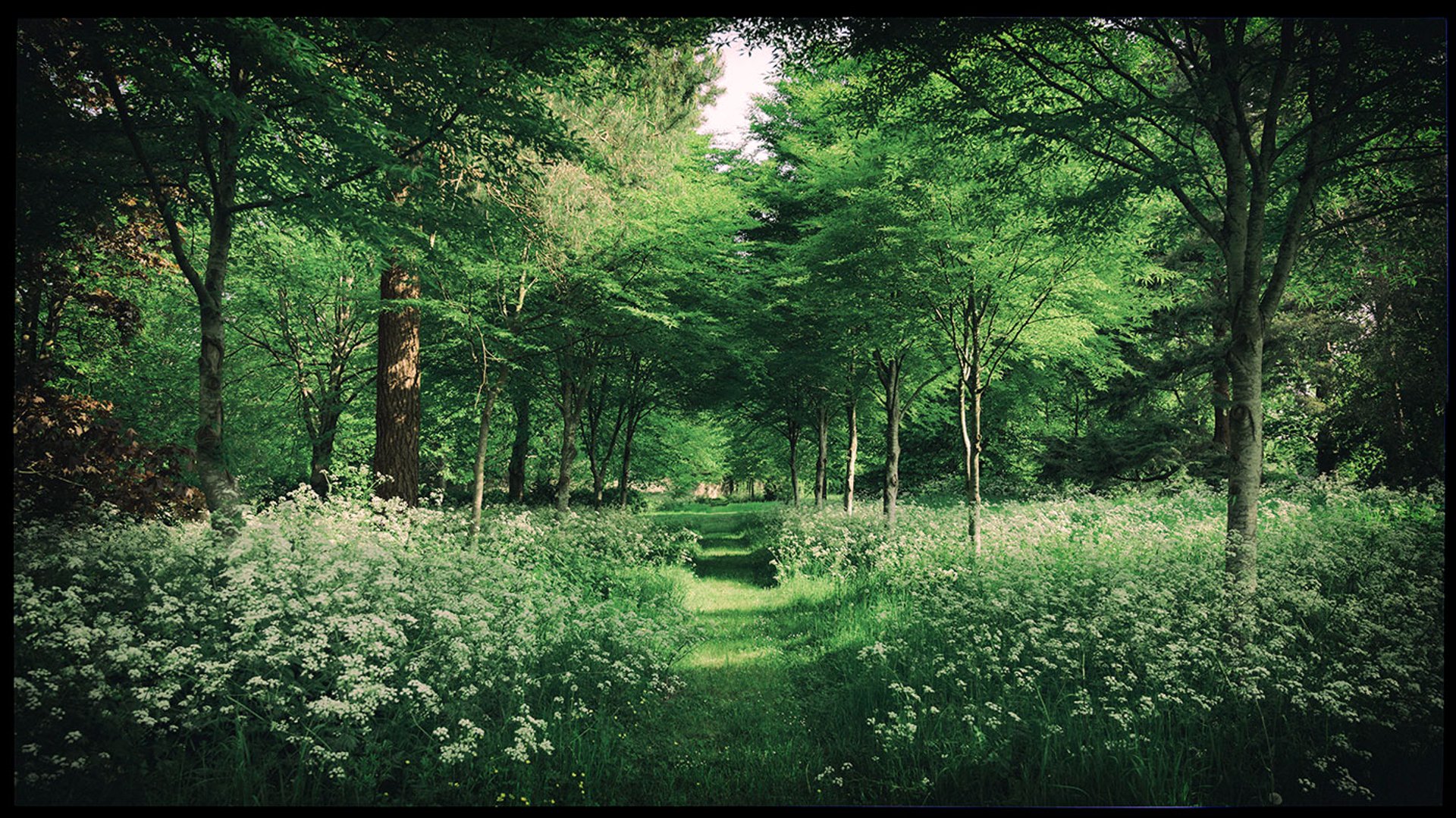
Landscape at Goodwood. The foundation's educational programme will be "about stepping into the natural world, experiencing art in a beautiful setting" Courtesy Goodwood Estate. Photograph: Jon Nicholson
The education programme, meanwhile, is being developed by Sally Bacon, former executive director of the Clore Duffield Foundation. The programme will be a separate but linked activity to Goodwood’s Education Trust, founded in 1976, which offers access to outdoor learning and hosts more than 4,000 school and college students on the estate annually. The new foundation's programme, Bacon said at the RA launch, will be free to access “for the children and young people who would most benefit” in order to “support art teaching for schools and provide high quality and practical art encounters and experiences for children”.
“A great deal of national and international evidence tells us that art activities provide children with capacities and skills for life and for work,” Bacon said. “But the arts have been significantly eroded in the schooling system the last decade and a half…Data tells us that cuts to state school trips have more than doubled to 50% last year.
“In schools with the most disadvantaged intake, there was a reduction of 68%. Coach travel costs have increased significantly during the cost of living crisis. Free education experience offers which include free travel costs are vanishingly rare and we wanted to ensure that our offer to schools was created in response to this reality.”
The programme, Bacon said, will not just be about art and design as a career, “but also about stepping into the natural world, experiencing art in a beautiful setting, thinking about what art is and can be, and enabling children to express themselves through art.”
“There will be a focus on supporting the first year of secondary school through a Start with Art programme,” he continued, “that boosts a strong connection to art from the very first year of a child's secondary education… We will run continuing-professional-development sessions for teachers and provide online resources for schools for our annual art exhibitions so that they can prepare or follow up on their visits. And when it's not easy to visit, only in the very darkest winter months, our artist educator team will visit schools through a new outreach programme.”
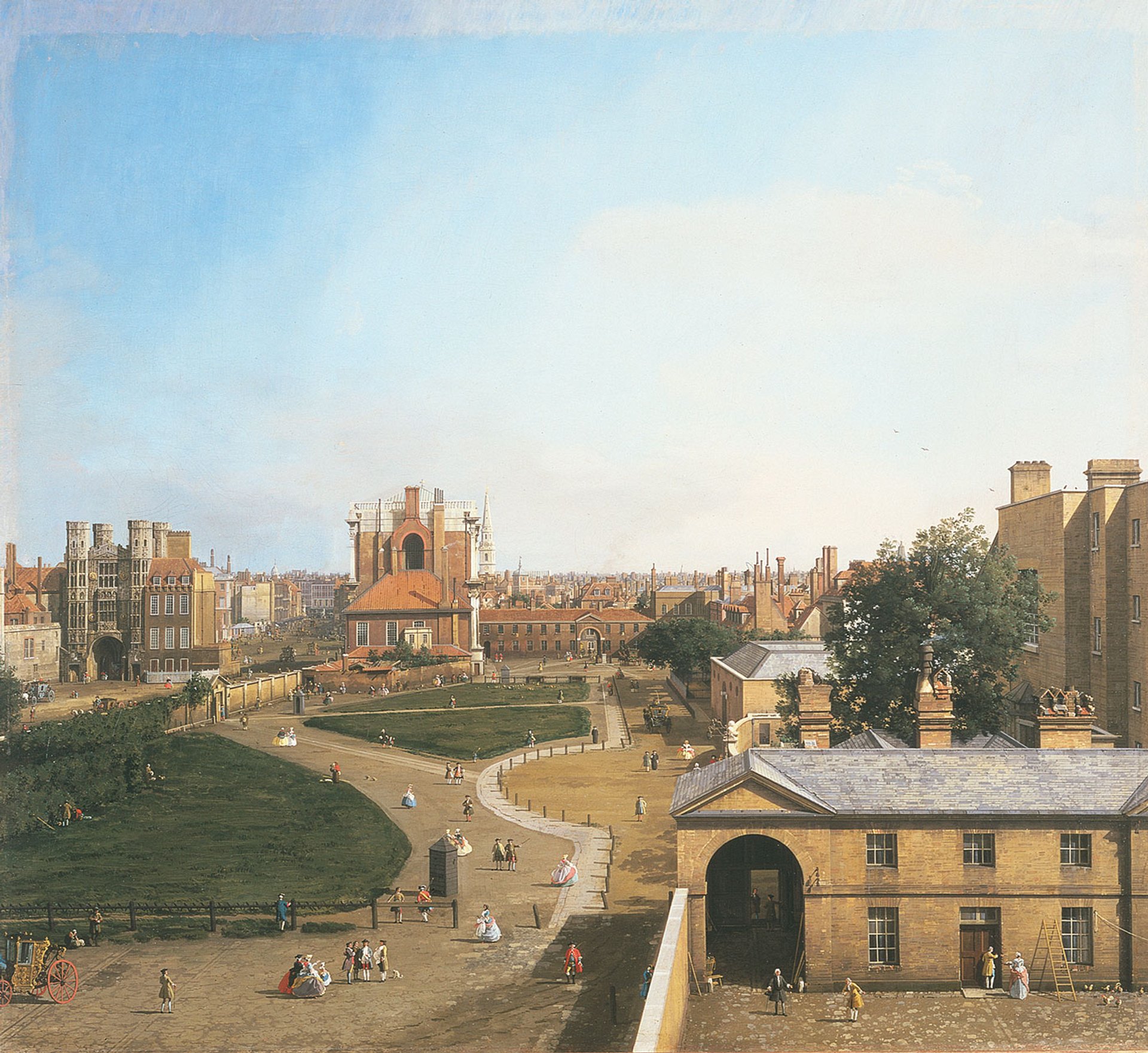
Giovanni Antonio Canal (Canaletto), Whitehall and the Privy Garden from Richmond House, 1747 Courtesy Goodwood Estate
A family tradition of supporting artists
At the launch of the Goodwood Art Foundation, the Duke of Richmond spoke about the challenge of carrying on his ancestors’ work as patrons of contemporary arts. The second duke commissioned work from Canaletto, including a view of Whitehall, in central London, seen from Richmond House, the family’s town house designed by the Palladian architect and taste-maker the Earl of Burlington. The house contained a sculpture gallery—one of the forerunners of the opening of the Royal Academy in 1768—where the third duke invited artists and students to study and draw copies of works.
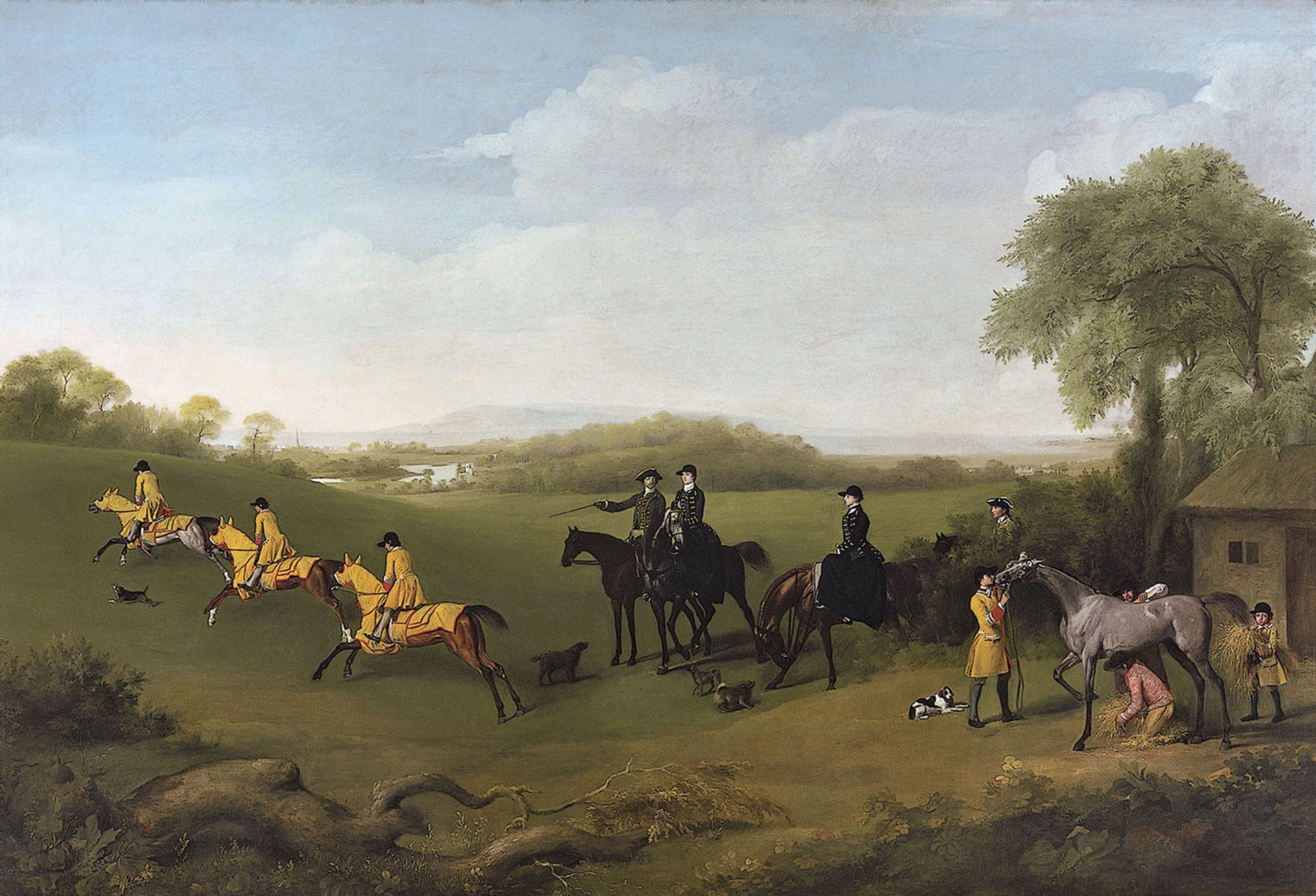
George Stubbs, Racehorses Exercising at Goodwood, 1759-60 Courtesy Goodwood Estate
The third duke was one of the Whig grandees—along with the Marquess of Rockingham of Wentworth Woodhouse, in Yorkshire—who supported George Stubbs in his breakout years of the late 1750s and early 1760s. After collectors in London saw Stubbs's exceptional preparatory drawings for The Anatomy of the Horse (1766), Stubbs emerged, with backing from patrons including Richmond and Rockingham, as the finest equestrian artist of his time.
Stubbs painted three large landscapes on site for the duke in 1759-60, including Racehorses Exercising at Goodwood, a transformational, multi-focus composition, Shooting at Goodwood and The Charlton Hunt. Goodwood made one of its most important acquisitions of recent decades when it recently bought an oil sketch on paper for The Charlton Hunt through a private sale. After belonging for more than two centuries to the heirs of the duke’s younger brother Lord George Lennox, the oil sketch “came home to Goodwood” in 2022.
“Drawing on a rich and varied heritage,” the present (and 11th) duke said this week, the new foundation “extends the estate's centuries-long engagement with art and with landscape”, and added how important it was that the foundation should foster “wellbeing, creativity and lifelong learning for people of all ages, backgrounds and abilities through engagement with art and connectedness with nature”.


